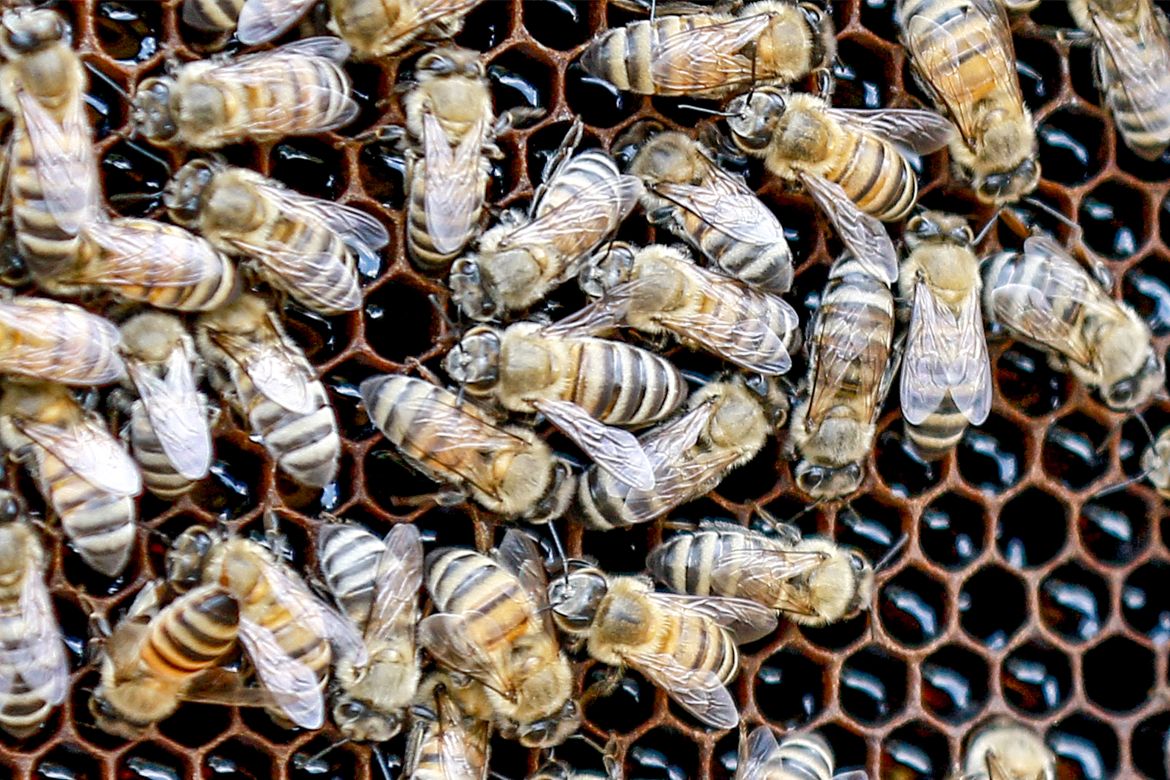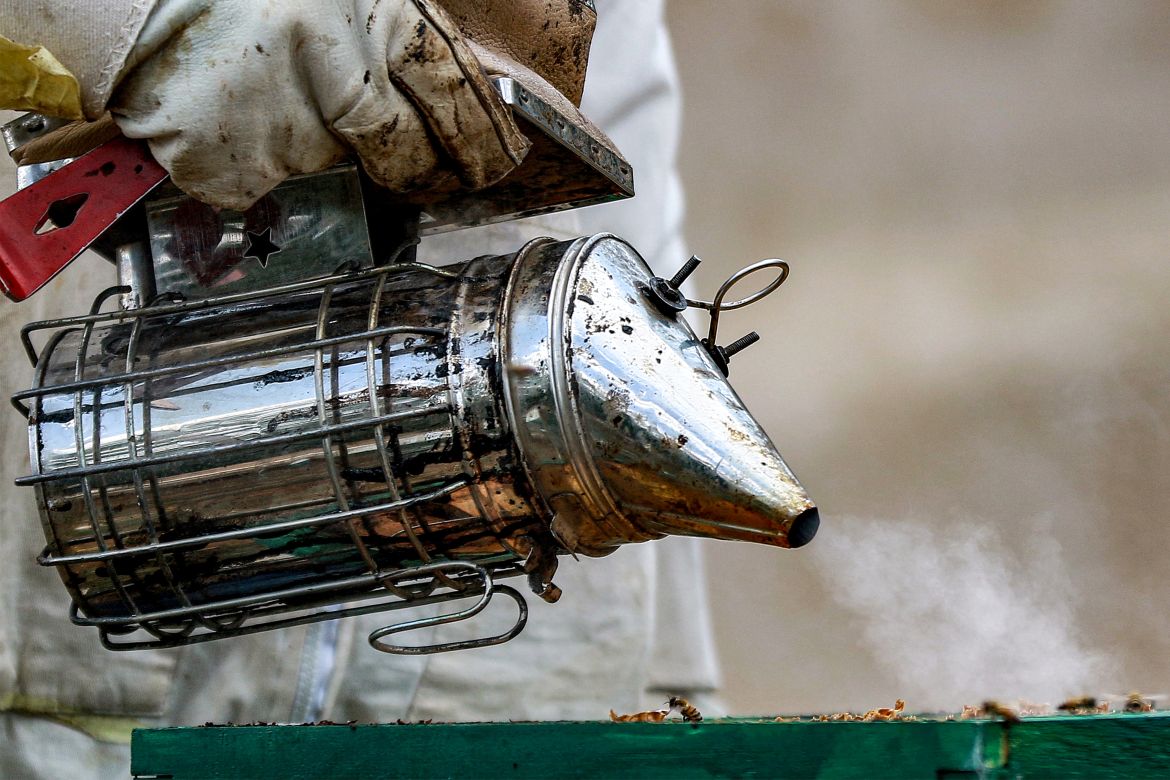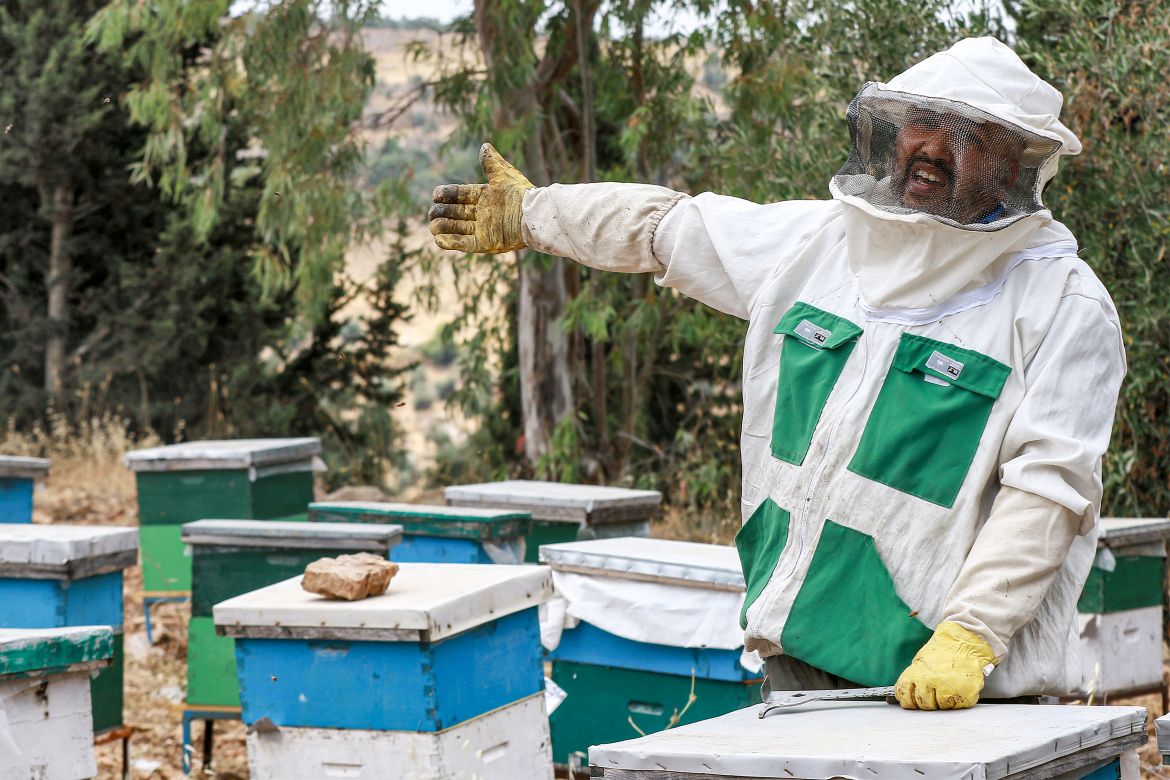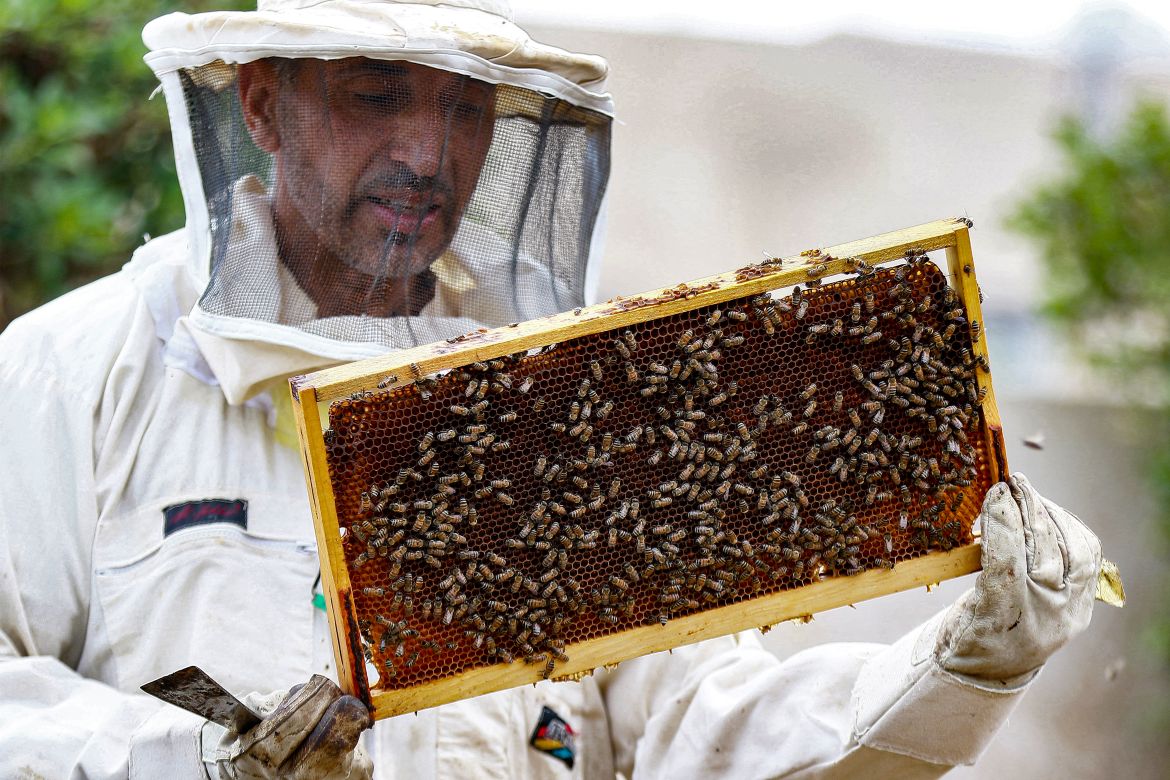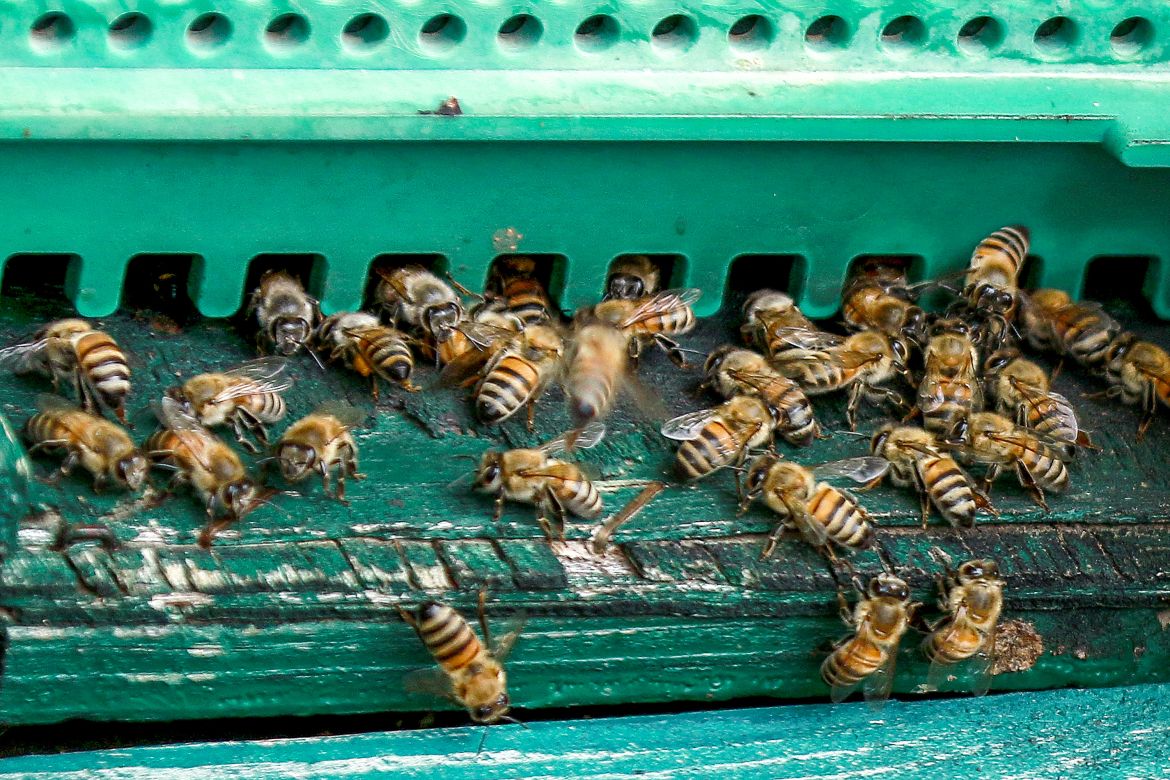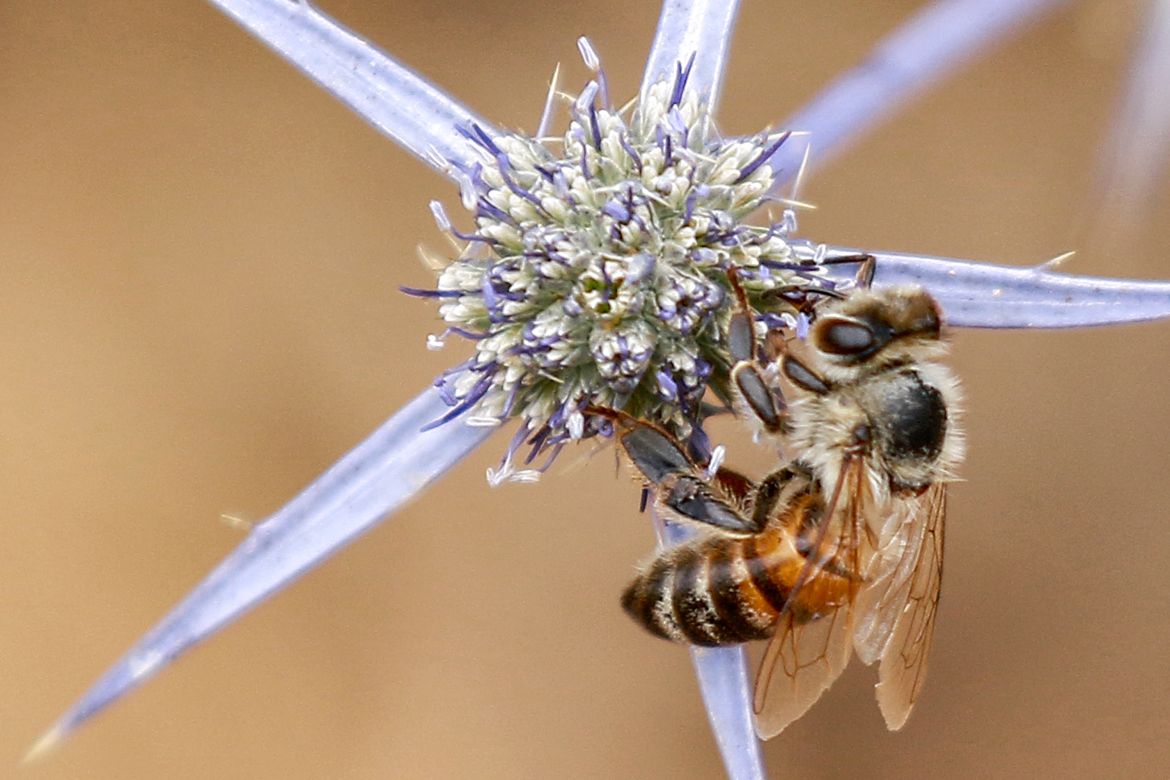In Pictures
Soaring demand for honey keeps Jordan’s beekeepers busy
Jordan prides itself on producing 19 different types of honey, including citrus, eucalyptus and maple.

While Jordan’s key tourism industry took a beating during COVID, another sector was boosted as Jordanian beekeepers rushed to fill the soaring demand for honey.
The country’s 4,000 apiarists have ramped up output of the golden substance long praised for its anti-inflammatory and other health benefits.
Even if there is no scientific consensus that honey helps fight COVID, many of those infected used it to soothe symptoms such as sore throats.
“The COVID period in particular had a great, positive impact on us,” said beekeeper Mutasim Hammad, 48, who retired 12 years ago from the public security directorate and turned his hobby into his main job.
Now, he tends to 80 hive boxes on a property in Irbid, 90km (60 miles) north of Amman.
“People have become more aware of the value of honey and are turning to the guaranteed locally produced honey,” said Hammad, who sells about 400kg (880 pounds) a year.
Jordan prides itself on its 19 different types of honey, including citrus, eucalyptus and maple varieties, depending on which plants the bees pollinate.
“We have about 2,500 flowering plants,” said Mohammad Rababaa, head of the Jordan Beekeeping Association.
“This diversity distinguishes Jordanian honey and means that the therapeutic and nutritional value of this honey is expected to be better than other types.”
Rababaa said the slightly bitter maple honey variety, for example, boasts “very high phenolic compounds and antioxidants compared to other types, which indicates that it has a higher value”.
Rababaa also said the sector has about 4,000 people working in it, a much bigger workforce than Jordan’s official count of about 1,400 beekeepers.
They produce about 700 to 800 tonnes annually, or about 70 percent of Jordan’s annual domestic needs, he said.
A fellow enthusiast, Mohammad Khatib, 49, also pointed to the pandemic and lockdown periods, saying it “helped me and gave me enough time to learn about bees and take good care of them”.
A French language professor at Al-Bayt University, he now works about 15 boxes in his garden, which he said earns him a nice side income.
Rababaa said beekeeping “also produces pollen, royal jelly, wax, propolis and bee venom, which is included in many therapeutic compounds”.
Crucially, healthy populations of bees and other insects provide an almost immeasurable ecosystem service by pollinating plants.
While the beekeeping sector generates about $28m a year, Rababaa said, “the indirect value of crop pollination exceeds $100m”.
